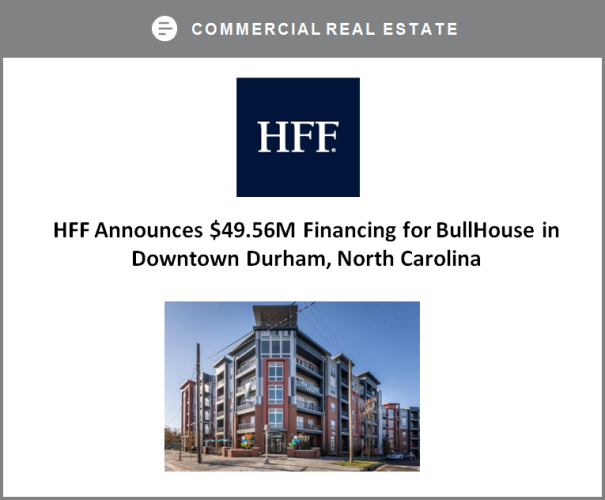William Henry Curry leads the North Carolina Symphony in music by Charles Ives and the world premiere of his own work, Autumn, on February 24.
“Ives is such a kooky character,” says North Carolina Symphony (NCS) Principal Horn Rebekah Daley, who singles out Charles Ives as the composer she would most like to meet given the chance. “He threw ‘Turkey in the Straw’ into a symphony, so you know he’s got to be nuts.”
The music of Charles Ives is an adventure for musicians to play and for audiences to listen to. Multiple melodies bump up against each other at the same time, and snatches of American folk songs and Protestant hymns are backed by wild harmonies—making for an exciting culmination of the three-part concert project the North Carolina Symphony has undertaken over three seasons, exploring the relationship between symphonic music and popular music traditions in the United States.
The third and final concert in this project—which was developed by scholar Joseph Horowitz and is presented with support from the National Endowment for the Humanities—takes place on Friday, February 24 at Meymandi Concert Hall in Raleigh. In addition to several works by Ives, the program features baritone Scott Macleod singing Stephen Foster’s “Camptown Races” (which is quoted in Ives’ Symphony No. 2), and the world premiere of a new work by North Carolina-based composer William Henry Curry, Autumn.
Curry will conduct the program; he served as NCS Resident Conductor for 20 years until this past July, when he stepped down to focus more time on composing. NCS commissioned Autumn in 2016.
Baritone Scott MacLeod will speak from the stage about each of the works on this program. The concert will be a multimedia experience, with the music accompanied by projections of historical photos, images of the manuscript scores, and images that guide audience members on what to listen for.
The first two concerts in this exploration of American orchestral music included Copland in Mexicoand Dvo?ák in America. An examination of American and American-influenced orchestral music would not be complete without Charles Ives, who is considered to be the father of classical music in this country. “Charles Ives was America’s first great orchestral composer,” explains Curry. “He was also the most original and inventive composer for the 20th century—a Thomas Edison of music.”
Ives’ inventiveness, quirkiness, and American roots (he grew up in Danbury, Connecticut) are all on full display in his Symphony No. 2. Protestant hymns, marches, and American popular tunes—“Turkey in the Straw” and “Camptown Races” are just a few—all make their way into the work, but reimagined in the European symphonic tradition. Ives doesn’t limit himself to grabbing melodies from American music—hints of Beethoven and Schumann, and quotes from Brahms and Wagner, are heard throughout. The symphony has many moments of beauty and tenderness, but Ives was a man with a hearty sense of humor; he saves his most raucous moment for the unexpected final chord, which comes across like a “Bronx cheer” and unfailingly receives a collective chuckle from the audience.
Like the Symphony No. 2, Ives’ The Alcotts is riddled with references to pre-existent music, from Beethoven’s Fifth Symphony to iconic Americana songs such as “Columbia, the Gem of the Ocean.” The piece is inspired, Ives explains, by the “spirit of Transcendentalism” that existed in the minds of intellectuals such as the philosopher Branson Alcott and his wife, the writer Louisa May Alcott. Ives composed the work for solo piano; NCS will perform the orchestration by John Boyd.
Despite his genius as a composer, Ives chose not to make his living at it—he was wary of the music industry and instead had a successful career running the largest life insurance agency in the country. Ives composed Variations on “America” as a teenager, when he still preferred to be known as a baseball player rather than as a composer or a musician. This virtuosic piece (written for organ and orchestrated for strings by William Henry Curry) is based on “My Country ’Tis of Thee.” Although its mock solemnity and misplaced fanfares might be attributed to the mischief of an adolescent, in fact, these sorts ofmusical games remained a hallmark of Ives’ compositional style throughout his life.
More reflective in mood, William Henry Curry’s new work, Autumn—which receives its world premiere in this performance—is described by the composer as depicting “the seasonal autumn and the autumn of a human life.” Curry adds, “To me, the most poignant of the four seasons in autumn. It is a time when our appreciations of the crisp days and blazing colors on display is tempered by our knowledge that these scenes will inevitably fade and decay.” The middle section is inspired by Henry David Thoreau’s essay “Autumnal Hints.”
This concert is included as part of Arts in the Triangle’s Art & Soulinitiative, celebrating African-American arts and artists during 2017. William Henry Curry is Art & Soul’s featured artist for the month of February.
The North Carolina Symphony expresses its appreciation to Concert Sponsor Deloitte for their generous support.
This program is supported by the National Endowment for the Humanities.
North Carolina Symphony
Friday Favorites
Ives’ Symphony No. 2
Friday, February 24 at Noon
Meymandi Concert Hall
Duke Energy Center for the Performing Arts
This special extended Friday Favorites program runs approximately two hours, including intermission.
PERFORMERSNorth Carolina Symphony
William Henry Curry, conductor
Scott MacLeod, baritone
PROGRAM
Ives:Variations on "America"
William Henry Curry:Autumn(World Premiere / NCS Commission)
Ives:The Alcotts
Foster:"Camptown Races"
Ives:Symphony No. 2
All tickets $28
Online: ncsymphony.org (TicketMaster fees apply)
By phone: 919.733.2750 ($8 processing fee applies)
In-person:
NCS State Headquarters Offices, 3700 Glenwood Ave., Suite 130, Raleigh (No processing fee)
About the North Carolina Symphony
Founded in 1932, the North Carolina Symphony (NCS) is a vital and honored component of North Carolina's cultural life. Its 175 concerts and events annually are greeted with enthusiasm by adults and schoolchildren in more than 90 North Carolina counties—in communities large and small, and in concert halls, auditoriums, gymnasiums, restaurants, clubs, and outdoor settings. The Symphony’s 66 full-time musicians perform under the artistic leadership of Music Director Grant Llewellyn.
NCS’s state headquarters venue is the spectacular Meymandi Concert Hall at the Duke Energy Center for the Performing Arts in downtown Raleigh. The Symphony’s service across the state includes series in Chapel Hill, Fayetteville, New Bern, Southern Pines, and Wilmington, as well as Summerfest concerts at the outdoor Koka Booth Amphitheatre in Cary. Collaborating with performers that range from classical artists, to banjo players, to jazz bands, NCS brings some of the world’s greatest talents to North Carolina.Committed to engaging students of all ages across North Carolina, NCS leads the most extensive education program of any U.S. orchestra. In alignment with the curriculum set by the North Carolina Department of Public Instruction, the Symphony provides training and resources for teachers, sends small ensembles into classrooms, and presents full-orchestra Education Concerts experienced by more than 52,000 4th and 5th graders each year. Music Discovery for preschoolers combines music with storytelling, and at the middle and high school levels, students have opportunities to work directly with NCS artists and perform for NCS audiences.
NCS is dedicated to giving voice to new art, and has given 47 U.S. or world premieres in its history. In March 2017, NCS will appear at The John F. Kennedy Center for the Performing Arts in Washington, D.C., as one of four orchestras chosen for the inaugural year ofSHIFT: A Festival of American Orchestras—an honor that recognizes the Symphony’s innovative community partnerships and creative programming that inspires increased interest in new music. The Symphony will present works by composers with ties to North Carolina, including Sarah Kirkland Snider, Caroline Shaw, Mason Bates, andRobert Ward.
The first state-supported symphony in the country, NCS performs under the auspices ofthe North Carolina Department of Natural and Cultural Resources.






